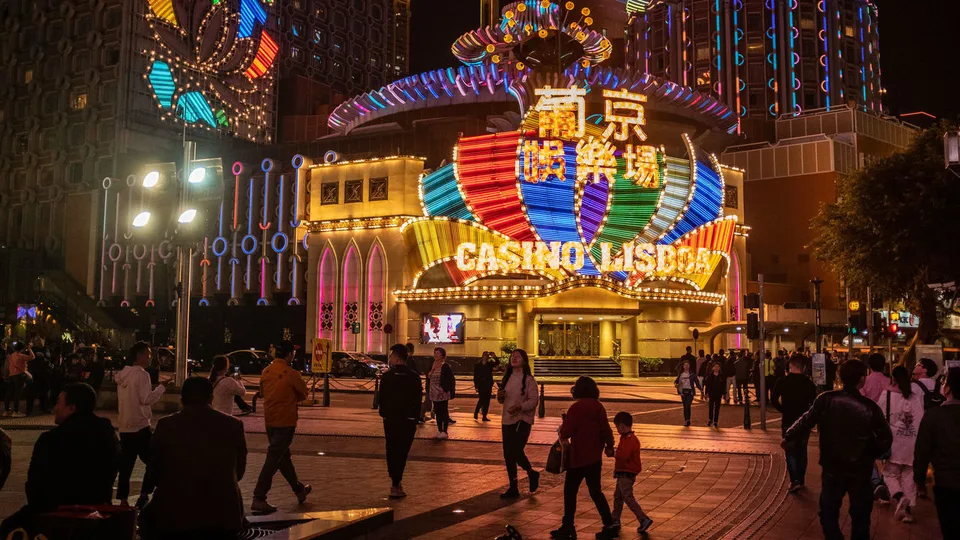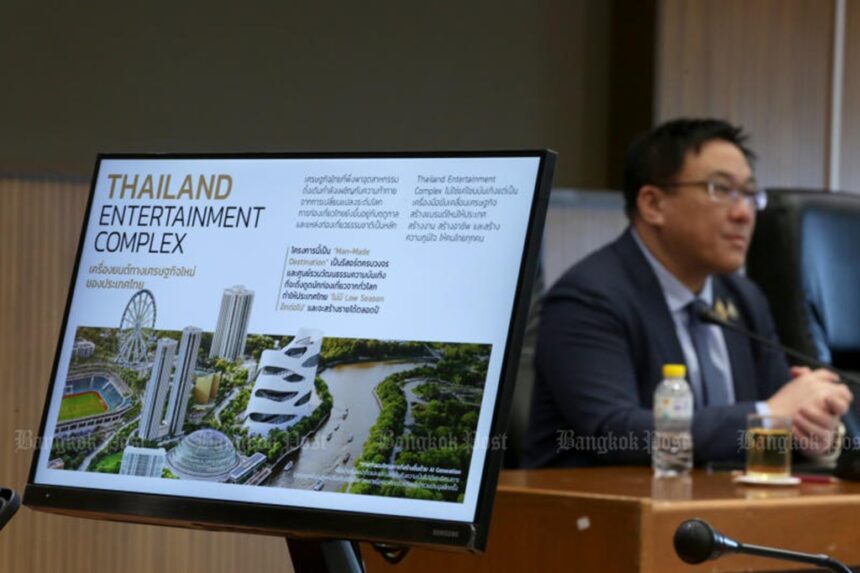BANGKOK– After months of heated debate, Thailand’s Senate has dismissed the Entertainment Complex Bill, halting hopes for legal casinos across the nation. The Senate’s vote, reached on September 23, 2025, brought an end to a long struggle between those pushing for tourism growth and those defending Thailand’s deep-rooted cultural values.
For a while, the bill from the Pheu Thai government, steered by former Prime Minister Paetongtarn Shinawatra, gained momentum. Supporters spoke of new resorts in cities like Bangkok, Phuket, Chiang Mai, and Chonburi. These complexes would have included hotels, shopping centres, and amusement parks, with casinos making up only 10% of the space.
Posters promised 100 billion baht in new investment, 15,000 jobs, and a 5-10% boost in foreign visitors, helping Thailand’s economy recover from the effects of the pandemic. However, critics were quick to point out a serious problem: casinos remain banned under the 1935 Gambling Act, and gambling stands at odds with Buddhist principles followed by most Thais, who see it as a path to hardship and decline.
The Senate’s move was not hasty. Over 180 days, a special committee led by Senator Veeraphan Suwannamai examined every detail. Their 200-page report, presented in a session led by Deputy Senate President Gen. Kriengkrai Srirak, outlined the bill’s weaknesses.

Social Risks Dominated the Debate
Senator Chinachot Saengsang described the bill as misleading, hiding greed behind promises of fun. The committee’s review pointed out constitutional issues and warned that giving a prime minister-led board authority to bypass checks and override existing rules could fuel corruption.
Social risks dominated the debate. Thailand’s Buddhist traditions teach moderation and discourage activities like gambling. Reports already show high rates of addiction despite tough laws. The Centre for Addiction Studies estimates over 64% of Thai adults gamble now and then, with illegal gambling taking in 1.1 trillion baht each year from hidden dens and online operators.
Roughly 21% of gamblers, about 7.45 million people, face serious consequences ranging from family breakdown to crime. A 2013 survey from the National Institute of Mental Health found that many problem gamblers also struggle with alcohol and nicotine addiction. The problem reaches the young too; recent research points to nearly 5 million children and teenagers involved in illegal betting, risking future harm before adulthood.
Senator Sornchat Vichaya Suwannaprom, vice chair of the committee, made a clear point: “Buddhism warns us about desire. We shouldn’t offer opportunities for more harm. While illegal gambling already hurts our families, the risks grow if casinos become legal.”
Those protesting outside Parliament, like the Network of Students and People for Reform of Thailand led by Pichit Chaimongkol, saw the Senate’s vote as a sign of good fortune. They argued that healthy economic growth should never come at the cost of social damage.
Economic claims made by supporters of the casino bill also fell short under scrutiny. The committee stated that most gambling profits move from players to owners, with few real benefits for society.

Thailand Cautioned Over Casinos
Financial gains, they said, could not offset the toll of higher addiction rates, increased crime, and broken families. Some warned that legal casinos might damage Thailand’s reputation as a calm and welcoming destination, attracting the wrong type of visitors.
The committee urged that Thailand build on its strengths in eco-tourism and wellness rather than bet on casinos.
Outside Thailand, there was also strong feedback. President Xi Jinping of China, during a visit from Paetongtarn in early 2025, was frank about the risks. He referred to Macau’s mixed past and urged caution if Thailand wanted to avoid similar problems, like rising crime and social issues.
Thai news outlets reported that after this meeting, Paetongtarn admitted Xi had voiced these warnings several times. Incoming Prime Minister Anutin Charnvirakul later blamed the casino debate for a notable drop in Chinese tourists, with arrivals falling 34% in the first part of 2025. He told Parliament that the country had lost out on billions of baht as tourists from China, a key market, stayed away.
With the bill withdrawn by the Cabinet in July, and the Senate now shutting the door, Thailand’s new coalition government under Anutin has promised that the issue is settled. The government has pledged not to revisit the idea and plans to focus on growth through technology and environmentally-friendly initiatives.
The Senate committee mapped out options for the future: keep casinos out, allow limited access like in some Australian cities, or hold a national vote. Senator Sornchat suggested more research on alternatives such as entertainment zones without casinos or regulated online gaming, but made it clear that care must be taken.
At present, most Thais seem relieved. In Chiang Rai, where traditions still shape daily life, the Senate’s decision is welcome news. As temple bells ring and locals go about their routines, the message is simple: Thailand’s real strength comes from its culture and community, not from gambling tables. This time, the public interest won out over quick profits.














